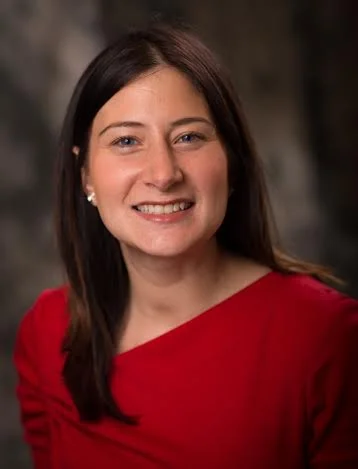Diversity and Inclusion: A Universal Responsibility - An Interview with Jessica Titlebaum Darmoni
Jessica Titlebaum Darmoni is the Founder of The Title Connection. She is a writer at heart, skilled in cryptocurrency, and a working mother.
Jessica entered into the derivatives industry in 2005 when a former employer found her resume on Monster.com. In 2009, she co-founded Women in Listed Derivatives (WILD), a not for profit organization that helps women advance their careers in derivatives. In 2016, Jessica founded The Title Connection, a marketing and business development firm that works with exchanges, trading firms, and technology providers to raise awareness about their offerings. Jessica is a Futures Industry Association (FIA) Operations Americas Board Member and a frequent contributor to Cboe Global Markets’ CBOETV What’s Trading Show.
We were able to find out how Jessica embraces diversity and inclusion daily in every area of her life.
THE INTERVIEW
How do you define diversity and inclusion?
Diversity and inclusion means equal opportunity for everyone. It doesn’t matter the gender, what someone looks like or whom they love – everyone deserves the same support and opportunities in the office, in the classroom and in extracurricular activities.
How much do diversity and inclusion matter to you?
A few years ago when I was pregnant with my oldest, I spoke on a panel about diversity and inclusion in finance. I came across a statistic in my research, according to a Peterson Institute/Ernst & Young study, there is a correlation between gender parity in business and paternity leave. Countries that have paternity policies in place also have positive gender parity in business. Women tend to do more household duties and offering paternity leave increases the expectation that men will take on the share of child-care responsibilities. This provides women with extra time to build business acumen and establish relationships that help her qualify for corporate boards.
This fact spoke directly to me. I realized that if it weren’t for my support system (my husband, my family, etc.) enabling me to pursue my careers and passions, in addition to my employers’ efforts, I would not be where I am today. Diversity and inclusion is not just a corporate responsibility, it’s a universal one.
How do you foster diversity and inclusion?
I built a global organization dedicated to diversity and inclusion. WILD provides networking opportunities, career development and educational resources to women in the derivatives space. This includes mentoring opportunities and salary negotiation workshops. WILD also promotes the benefits of gender diversity on corporate boards and in the C-Suite.
What challenges do you face when speaking about these matters?
Being in the financial world, specifically the trading and technology space, I am frequently the only woman in the room. While this would intimidate some, I have found that this is my strength. I bring a unique perspective to the table and cannot be afraid to voice my opinions.
I know that I would not be where I am today without the women that have come before me in the derivatives space. I have to acknowledge and thank them. They faced and overcame challenges, and this has made my path less rocky.
What are some of the accomplishments you've made by speaking of or by fostering diversity and inclusion?
I built WILD, a not for profit organization, that has branches in Chicago, New York, London, Frankfurt, Singapore, and Mexico City. When a woman in derivatives is going to a foreign city for work she has a network of other women that she can tap into for a variety of needs.
I’ve also been able to build The Title Connection off of the work I did with WILD and helping women advance their careers. I have helped friends and colleagues find jobs, negotiate salary raises and get Board seats. I’ve been given opportunities myself to sit on Boards and speak on related panels.
What or who inspires you to be diverse and inclusive?
My girls. I have two young daughters and I want them to be given the opportunities, support, guidance and salary that they deserve.
What is your dream for the future of our society when it comes to these matters?
I hope in the future we don’t have to force diversity and inclusion on society and instead this progress happens organically. For example, European countries have mandated gender quotas to tackle the under-representation of women on boards. I’d rather see women get the board seat because they are qualified, not because they are female.
What would you like to see happen in other people around you that would motivate and inspire others to also be diverse and inclusive?
I think as a society we can be more open-minded and supportive of an individual’s unique needs. Not only do we need to provide equal opportunities but we need to be aware of the different challenges each person has and understand how we can help them for universal success.
What were your dreams/goals as a young child? What are your dreams/goals now?
When I was a young child, I wanted to be an archeologist and dig up old artifacts in Egypt. After college, I backpacked Southeast Asia. I was teaching English in Thailand when I crossed the border into Cambodia and saw poverty as I had never seen it before. I took a slow boat from Battambang to Siem Reap to see Angkor Wat and en route, we passed floating villages and derelict towns. I didn’t realize that people could live in that type of poverty and instability. After living abroad, I wanted to help change the world. One of the best ways, I believed someone could do this, was to become a journalist and tell their stories.

